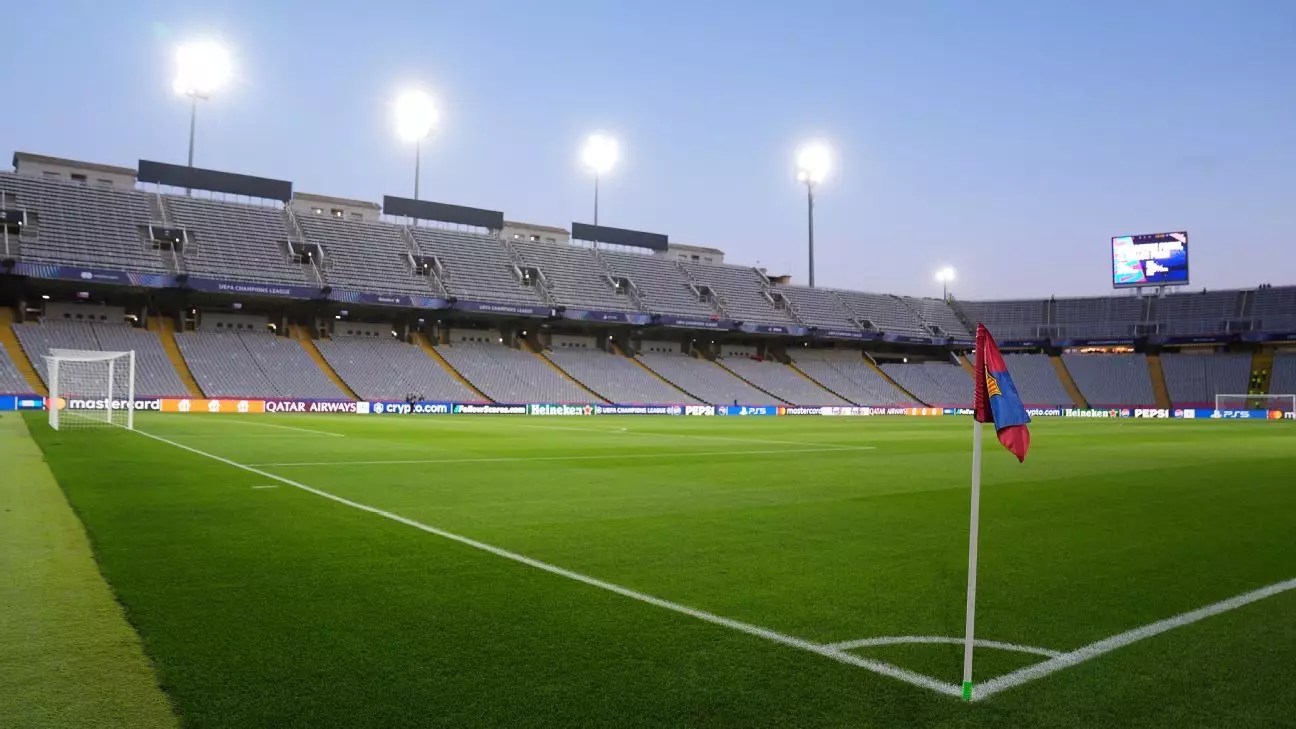The recent conflict between FC Barcelona and its dedicated supporters has drawn the ire of many loyal fans and sparked serious questions about the club’s direction. This discontent became particularly pronounced when a coalition of fan groups, known as the Espai d’Animació (EDA), was barred from attending two significant matches at the temporary Olympic Stadium venue. By sidelining these passionate supporters, the club seems to be compromising long-standing traditions and values in favor of a more commercially-driven model. This incident epitomizes a growing rift between football clubs and their grassroots supporters, whose voices often risk being drowned in the cacophony of financial interests.
The Clash Over Fines
The roots of this conflict can be traced back to a series of fines imposed on the EDA, amounting to €21,000 for violations related to behaviors and chants deemed inappropriate within the stadium’s regulations. While the club argues that these fines are justified and should be collectively borne by the EDA, the fans counter that the responsibilities for any alleged infractions should be pinpointed to individual offenders. This fundamental disagreement highlights a significant disconnect between the management’s regulatory approach and the supporters’ desire for fair representation and acknowledgment of their loyalty. Rather than fostering an inclusive environment for passionate supporters, the current circumstances only widen the gap and undermine the club’s cultural fabric.
The Emotional Toll of Exclusion
The expulsion of the EDA from the matches, specifically during the Champions League clash against Brest and the historic 125th anniversary game against Las Palmas, struck a raw nerve among the club’s loyalists. These events, heralded as milestones in Barcelona’s storied history, should have been celebrations steeped in the collective memories of the fans who have steadfastly backed the club through good and bad times. Instead, the restrictions forced loyal supporters to grapple with feelings of exclusion and disenfranchisement. The EDA’s statement poignantly captures this sentiment, emphasizing the emotional burden of being sidelined from important moments that are integral to the identity of the Barcelona community.
Commercialization vs. Community
As articulated by the EDA, there is a growing perception that Barcelona’s leadership is prioritizing a business model that favors financial gain over robust community engagement. They accuse the board of dismantling the very essence of football culture by filling the stands with casual tourists rather than passionate locals. This commercialization often manifests in superficial entertainment elements like “kiss cams” at pivotal moments in games or exorbitant ticket pricing that only serves to alienate the core fanbase. By trading in historical rivalries for a more sanitized experience, the board risks eroding the unique atmosphere that has long made FC Barcelona a beloved institution. The argument is not just about financial implications, but about preserving the club’s soul.
The consequences of ignoring the voice of long-term supporters could be detrimental not only to fan morale but also to Barcelona’s identity as a cultural icon. The appeal made by the EDA posits that this is not merely a matter of economic upkeep but about safeguarding the dignity and heritage of the club. The loss of vocal fan sections and the transformation of matchday experiences into corporate spectacles challenge what it means to be part of FC Barcelona. It raises crucial questions: What are we sacrificing in the name of profit? Can the essence of this historic club survive under such a model?
The implications of this conflict are far-reaching. Those in charge must recognize that the passion and dedication of the club’s supporters are irreplaceable assets that contribute to its legacy. The fans’ outcry is not simply a rejection of fines; it is a rallying cry to restore fairness, transparency, and the spirit of community that has characterized FC Barcelona through the decades. This moment serves as a wake-up call for both club management and supporters alike—if substantial steps are not taken to realign the club’s focus back to its roots, there exists a genuine risk of eroding the very values that make FC Barcelona a beacon of hope and unity in the world of football. The future of this storied club hinges on its ability to reconcile the demands of commercial viability with the deep-seated traditions that have endeared it to countless fans worldwide.


Leave a Reply